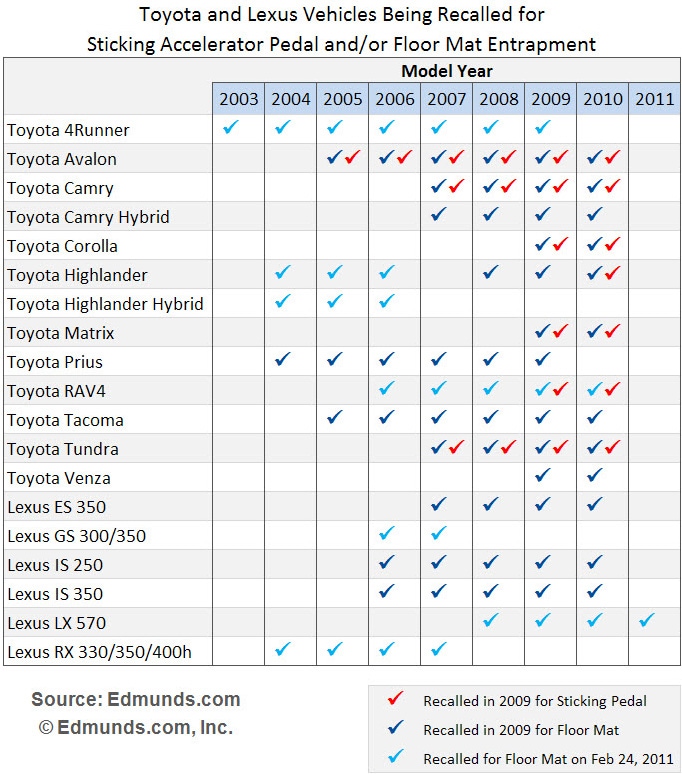Sorting If You Are Affected by the Recalls and How To Respond
Update: On February 24, 2011, Toyota Motor Sales USA added another 2 million vehicles to a recall initiated in 2009 to remediate loose floormats that could cause the accelerator pedal to remain partially depressed after the driver releases it. More details are here. The chart shown below reflects the recalls as of February 2011.





